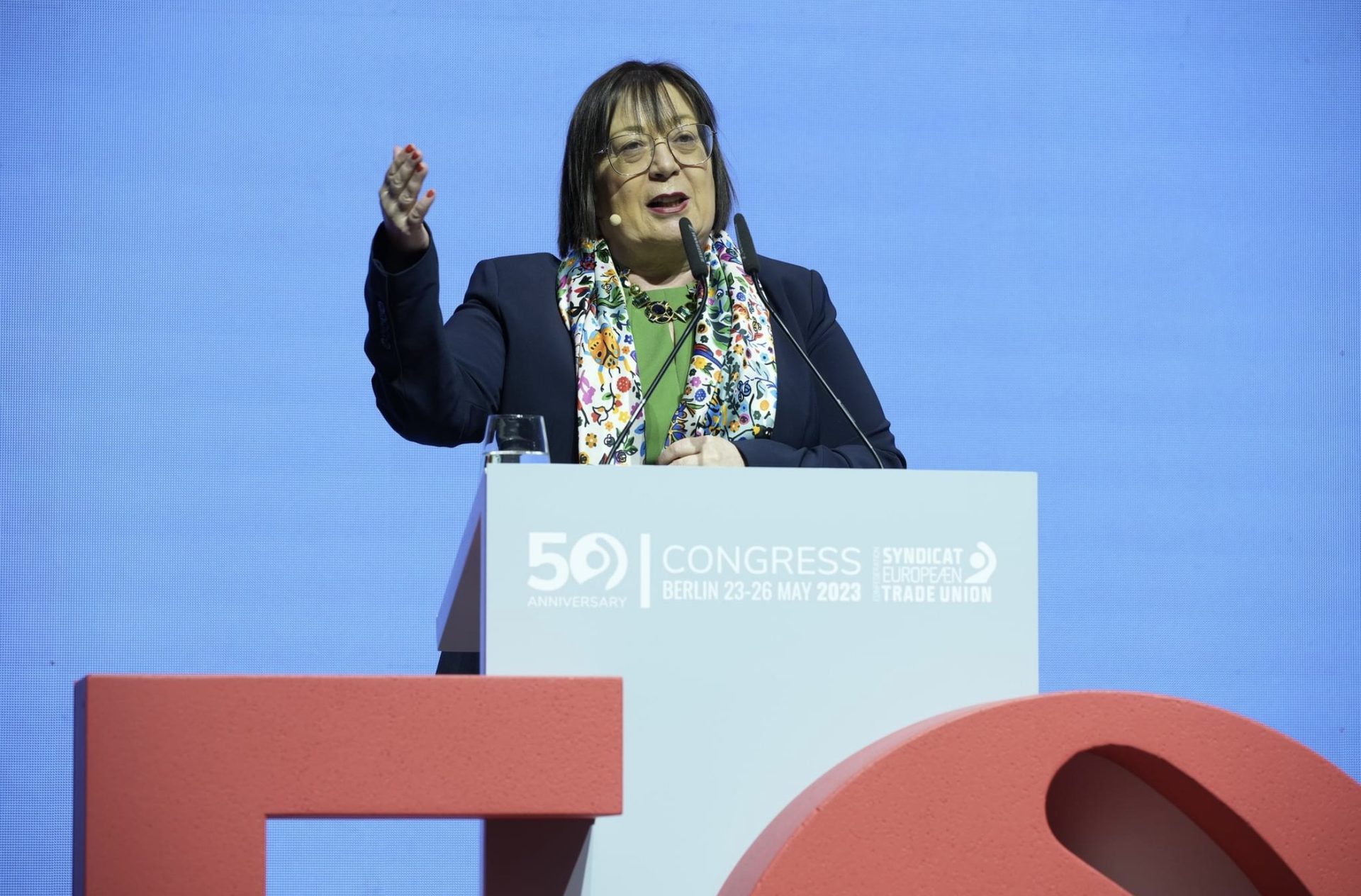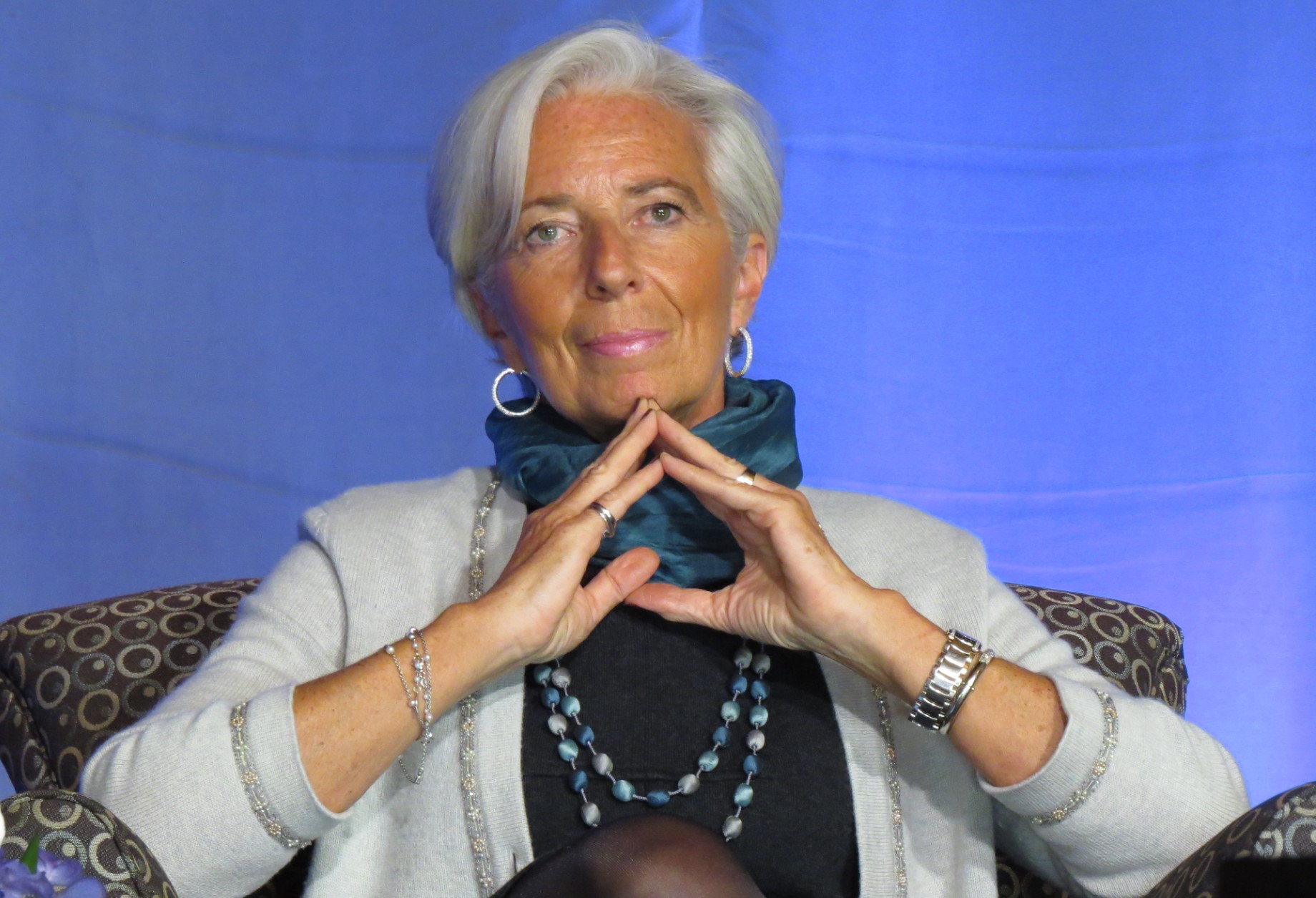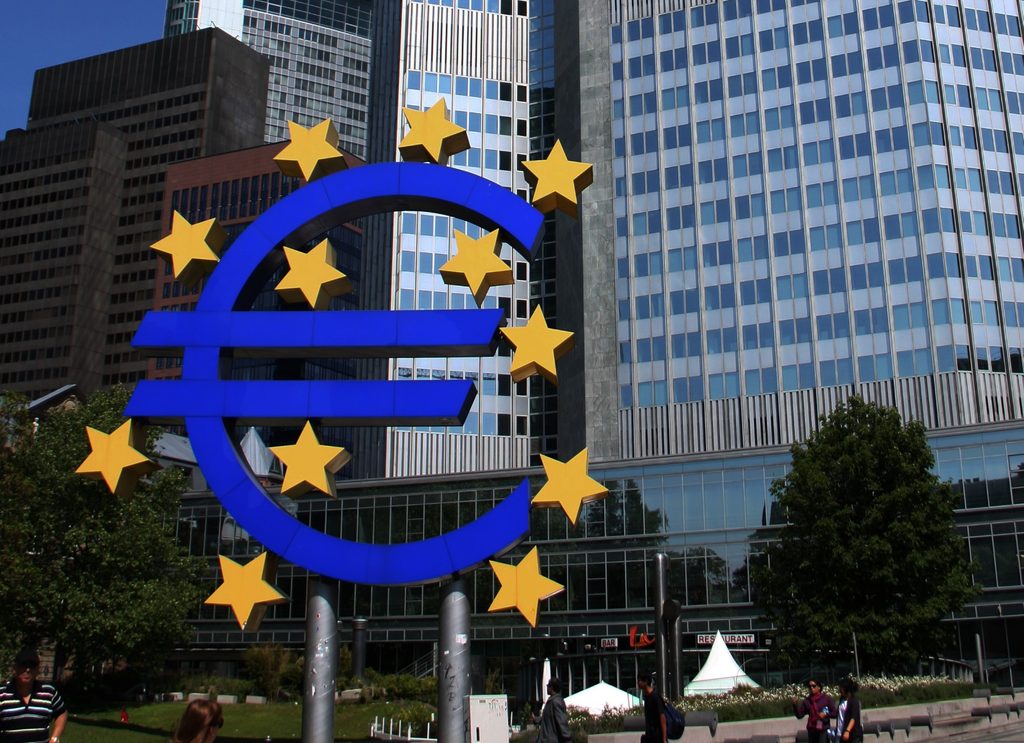The head of Europe's largest trade union confederation has suggested that the European Central Bank's (ECB) monetary policy is contradicted by its own economists' analyses, and claimed that hiking interest rates to combat inflation will only exacerbate Europe's continuing economic malaise.
In a written statement to The Brussels Times, European Trade Union Confederation (ETUC) General Secretary Esther Lynch pointed to the fact that both the International Monetary Fund (IMF) and the ECB have concluded in recent months that rising corporate profits, rather than increasing wages, are the principal cause of Europe's high inflation rate.
"Both the ECB and the IMF have said that profits are the largest contributor to inflation and yet they are still making working people pay the price by raising interest rates or advocating real wage cuts," she said. "The ECB needs to change course and bring its actions in line with its own analysis."

ETUC General Secretary Esther Lynch. Credit: Facebook / ETUC
Lynch further argued that, rather than hiking interest rates, European policymakers should impose windfall taxes on highly profitable companies, as has already been done in several EU Member States including Italy and Czechia.
"We need to stop hitting the victims of inflation and finally tackle its root cause by ensuring every country has an effective windfall tax on excess profits," she said.
The price of avarice
The ECB has increased interest rates nine times in the past year as it attempts to dampen persistent price pressures throughout the EU.
At its last rate hike in July, the ECB raised interest rates by 25 basis points (0.25 percentage points), bringing its benchmark deposit facility rate to a record high of 3.75%.
According to the latest flash estimate released by Eurostat, the EU's official statistics office, eurozone inflation fell to 5.3% last month: a significant decrease from its 10.6% peak in October last year, but still more than two-and-a-half times higher than the ECB's 2% target rate.
Asked by The Brussels Times to comment on the ETUC's views, the ECB pointed to the fact that at a recent press conference ECB President Christine Lagarde noted that rising labour costs – in addition to higher profit margins – are "playing an increasing role as a driver of inflation".

ECB President Christine Lagarde. Credit: Wikimedia Commons
Lynch, however, suggested that wage growth is actually a consequence, rather than cause, of corporate greed. "The reason wages need to rise is that corporations are raising the prices of everyday goods in a cynical effort to increase their profit margins," she said.
"You only need to do the weekly food shop to see what is causing inflation. It is certainly not ordinary people who are finding it harder and harder to put food on the table," she added.
Related News
- 'We are getting closer': ECB hikes interest rates to record high
- ECB rate hike condemned as 'reckless' by Europe's major trade union
Indeed, Lynch's analysis would appear to be corroborated by the ECB's own Chief Economist Philip Lane, who recently told The New York Times that, in order for inflation to continue to fall throughout the eurozone area, corporate profits will need to "absorb" additional salary growth.
"We can see wages growing quite strongly but inflation still dropping," Lane said. "Because the profitability was so high last year, in the aggregate, there is room for profits to fall to absorb some of those wage increases."

